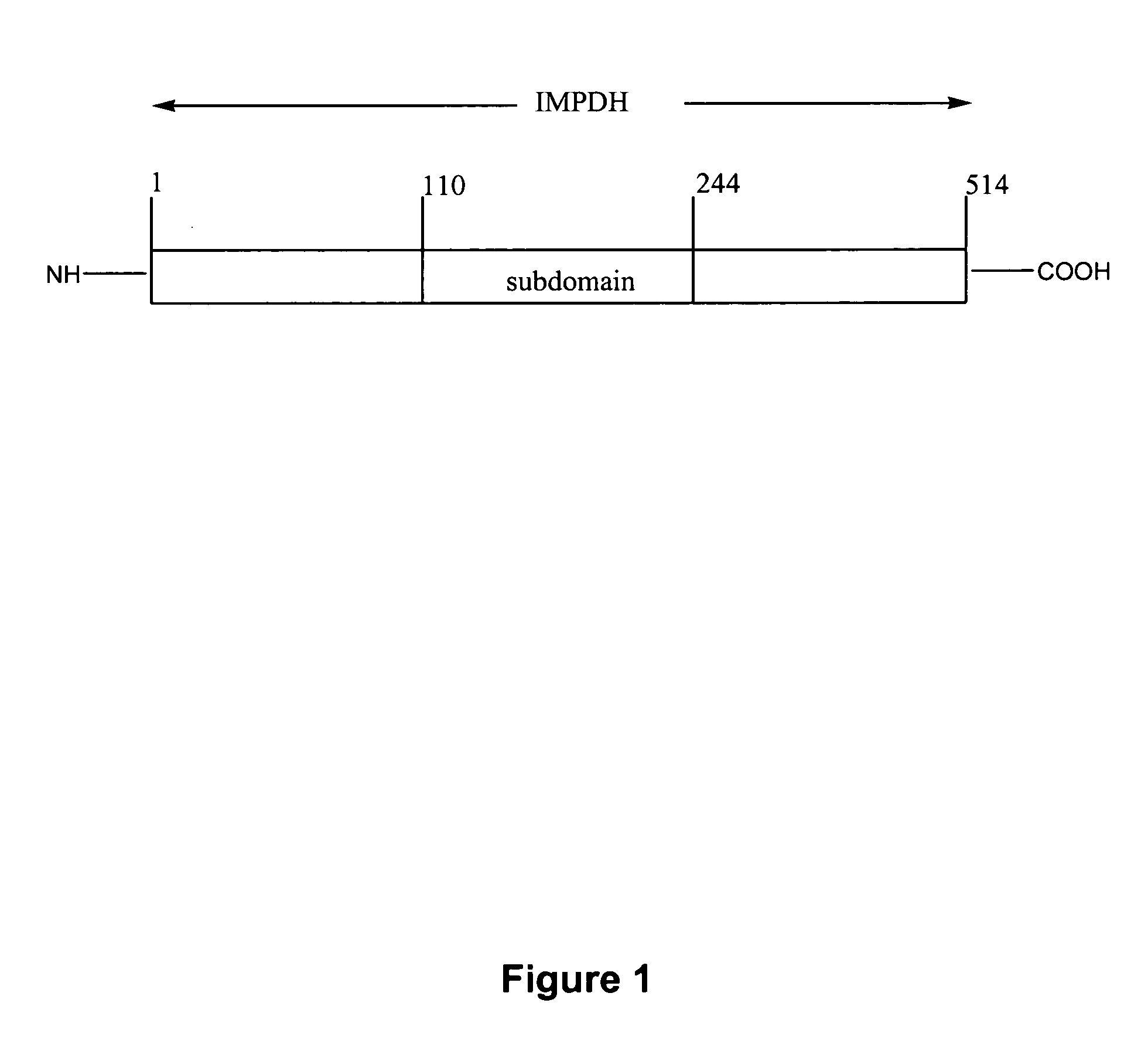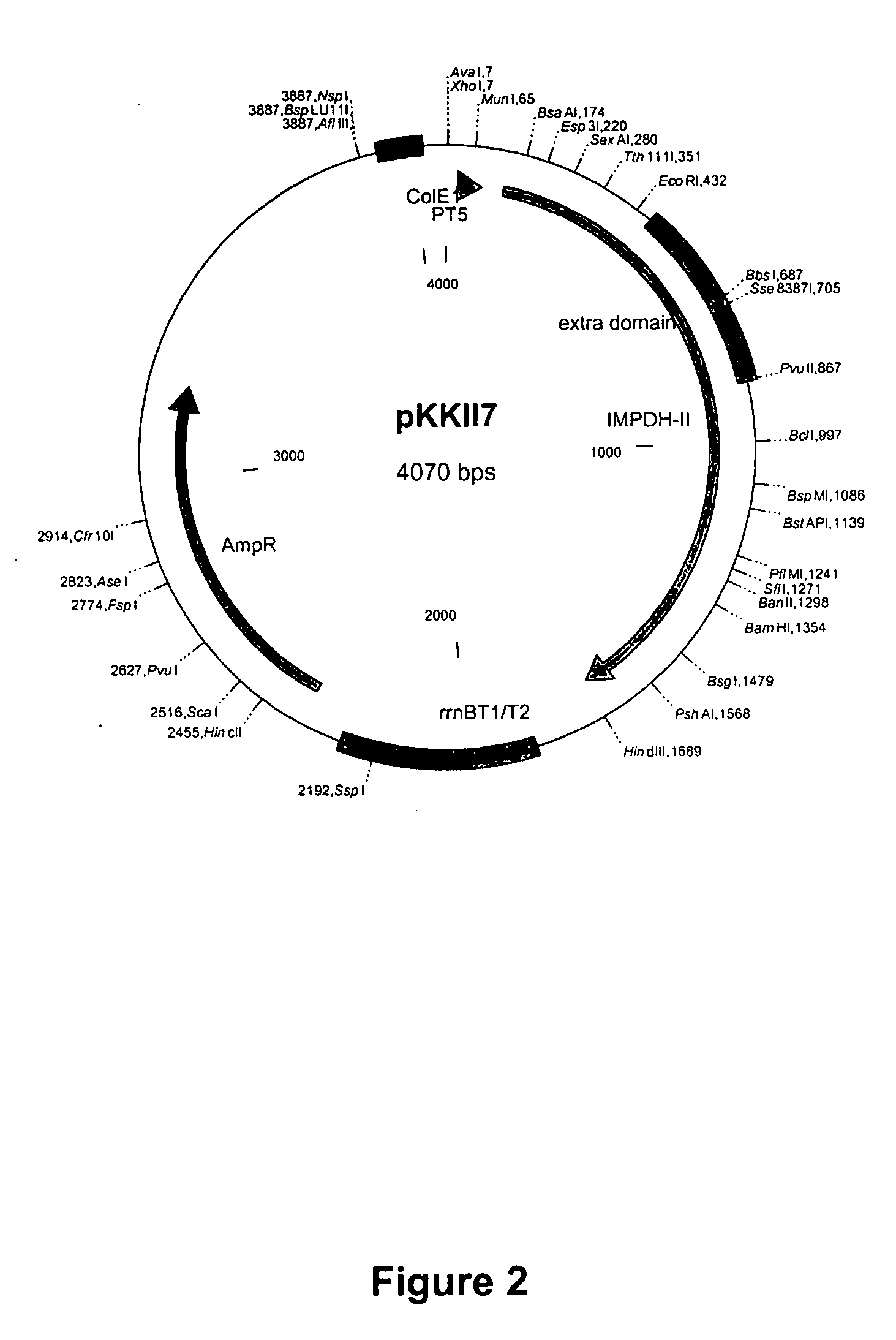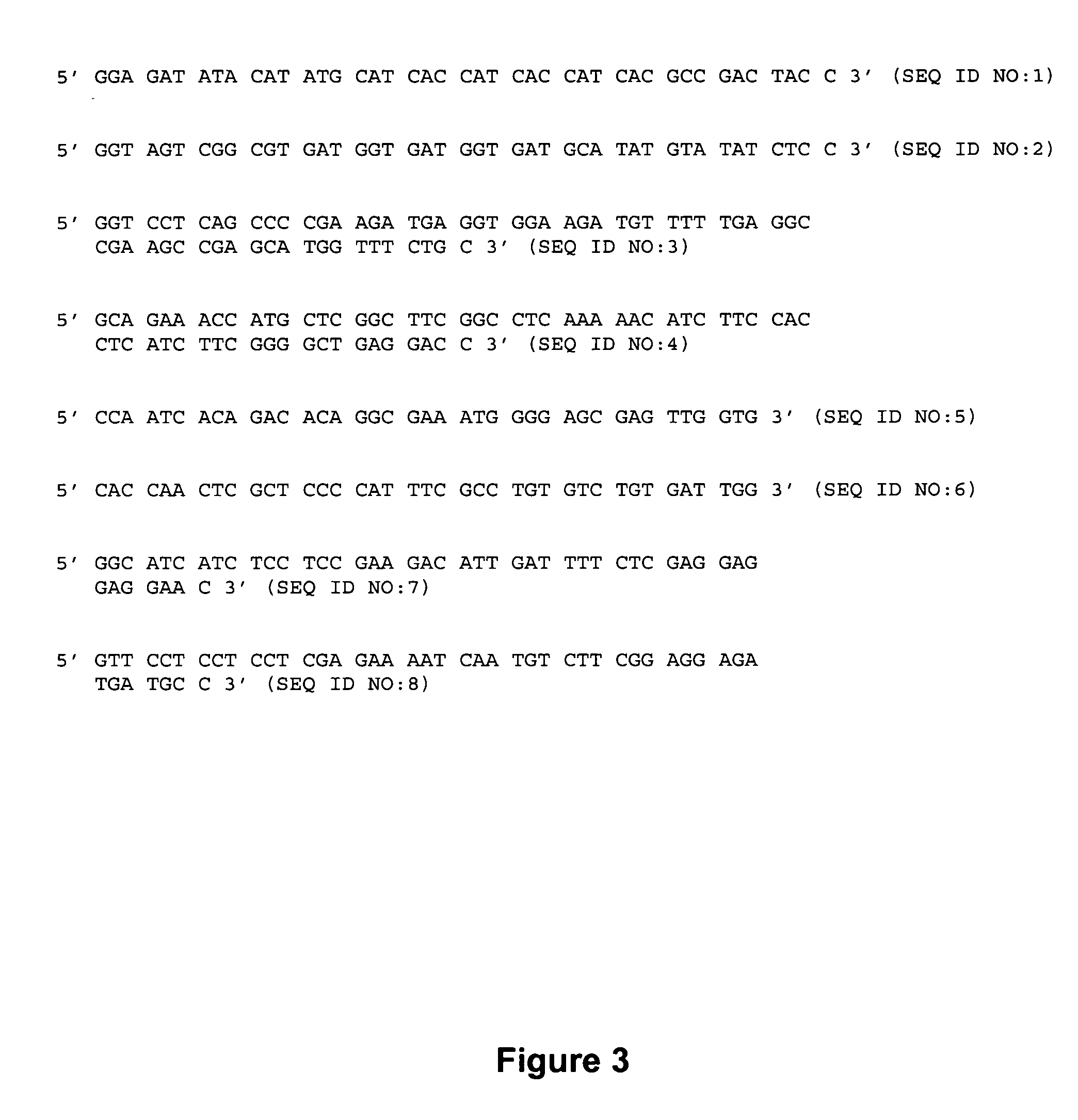Modified inosine monophosphate dehydrogenases
a technology of inosine monophosphate and dehydrogenase, which is applied in the direction of polypeptides with his-tags, organic chemistry, enzymology, etc., can solve the problem that the guanine nucleotide synthesis rate-limiting step of the impdh catalyzed oxidation of imp to xmp
- Summary
- Abstract
- Description
- Claims
- Application Information
AI Technical Summary
Benefits of technology
Problems solved by technology
Method used
Image
Examples
specific embodiments
[0083] In the examples that follow, boldface numbers refer to the corresponding structure in the drawings.
example 1
Modification of Wild-Type Human Type II IMPDH
[0084] The wild-type human type II IMPDH sequence (SEQ ID NO: 9) was cloned into pKKll7 (also denominated pKK / T7; see FIG. 2) at the site by cloning techniques known in the art. The wild-type IMPDH II sequence was modified to encode a 6-histidine tag at the 5′-end of the wild-type IMPDH II sequence by inserting the sequence shown in SEQ ID NO: 1 into the wild-type IMPDH II sequence in pKKll7 after the ATG start codon by PCR using the primers shown in SEQ ID NO: 1 and SEQ ID NO: 2. The QuikChange™ Site-Directed Mutagenesis Kit (Stratagene, La Jolla, Calif.) was used and the primer design and the protocol for PCR were essentially as described in the instruction manual for the QuikChange™ Site-Directed Mutagenesis Kit. The primers were synthesized and purified by Commonwealth Biotechnologies, Inc., Richmond, Va.
[0085] Briefly, the PCR protocol was as follows. The PCR reactions contained 2 μL of double-stranded pKKll7 DNA with the IMPDH II ...
example 2
Transformation of E. coli H712
[0092]E. coli H712 (Yale University) was transformed and was used for expression of the histidine-tagged, modified IMPDH polypeptides, and for expression of the wild-type and histidine-tagged polypeptides. The DNA used for transformation of E. coli H712 was the plasmid DNA from positive clones isolated using the QIAprep® kit (Qiagen, Valencia, Calif.) or pKKll7 plasmid with an insert encoding the wild-type polypeptide.
[0093]E. coli H712 were made competent by the method of Chung, et al., Proc. Natl. Acad. Sci. 86:2172 (1989), incorporated herein by reference, with modifications. Briefly, a fresh overnight culture of E. coli H712 in LB broth was diluted 1:50 into warmed LB broth to a final volume of 60 ml. The culture was incubated at 37° C. with shaking at 225 rpm until the culture reached an OD600nm of about 0.3-0.4. The 60 mL culture was centrifuged for 15 minutes at 4100×g and the pellet was resuspended in 6 mL of cold TSS (LB broth, 10% PEG (MW 80...
PUM
| Property | Measurement | Unit |
|---|---|---|
| molecular weight | aaaaa | aaaaa |
| volume | aaaaa | aaaaa |
| volume | aaaaa | aaaaa |
Abstract
Description
Claims
Application Information
 Login to View More
Login to View More - R&D
- Intellectual Property
- Life Sciences
- Materials
- Tech Scout
- Unparalleled Data Quality
- Higher Quality Content
- 60% Fewer Hallucinations
Browse by: Latest US Patents, China's latest patents, Technical Efficacy Thesaurus, Application Domain, Technology Topic, Popular Technical Reports.
© 2025 PatSnap. All rights reserved.Legal|Privacy policy|Modern Slavery Act Transparency Statement|Sitemap|About US| Contact US: help@patsnap.com



